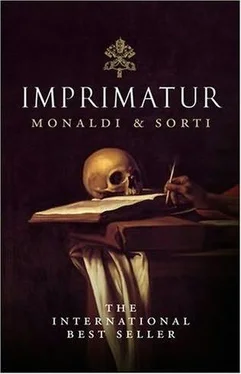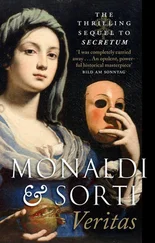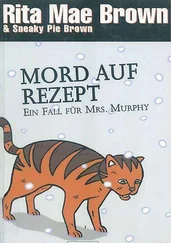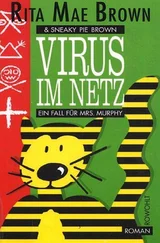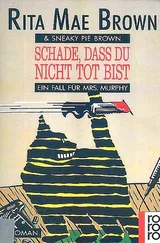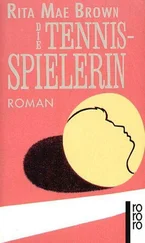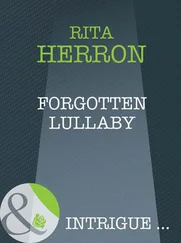Rita Monaldi - Imprimatur
Здесь есть возможность читать онлайн «Rita Monaldi - Imprimatur» весь текст электронной книги совершенно бесплатно (целиком полную версию без сокращений). В некоторых случаях можно слушать аудио, скачать через торрент в формате fb2 и присутствует краткое содержание. Жанр: Исторический детектив, на английском языке. Описание произведения, (предисловие) а так же отзывы посетителей доступны на портале библиотеки ЛибКат.
- Название:Imprimatur
- Автор:
- Жанр:
- Год:неизвестен
- ISBN:нет данных
- Рейтинг книги:5 / 5. Голосов: 1
-
Избранное:Добавить в избранное
- Отзывы:
-
Ваша оценка:
- 100
- 1
- 2
- 3
- 4
- 5
Imprimatur: краткое содержание, описание и аннотация
Предлагаем к чтению аннотацию, описание, краткое содержание или предисловие (зависит от того, что написал сам автор книги «Imprimatur»). Если вы не нашли необходимую информацию о книге — напишите в комментариях, мы постараемся отыскать её.
Imprimatur — читать онлайн бесплатно полную книгу (весь текст) целиком
Ниже представлен текст книги, разбитый по страницам. Система сохранения места последней прочитанной страницы, позволяет с удобством читать онлайн бесплатно книгу «Imprimatur», без необходимости каждый раз заново искать на чём Вы остановились. Поставьте закладку, и сможете в любой момент перейти на страницу, на которой закончили чтение.
Интервал:
Закладка:
Almost forty years have passed since I received by post the typescript narrating the tale of the Donzello and its dwarf apprentice. Obviously, my first thought was that here was a work in which fantasy was predominant. True, the two authors had (or so they said) drawn upon a historical document: the unpublished memoir of an apprentice, dating back to 1699. I knew moreover, as a priest and a scholar, that the text was correct in regard to Abbot Morandi and Tommaso Campanella, the Jansenists and the Jesuits, the ancient Societas Orationis et Mortis, as well as the no longer existent monastery of the Celestines, and even the bizarre beliefs circulating in the seventeenth century concerning Confession and Extreme Unction. Finally, the many examples of lexical licence and a certain cavalier handling of Latin quotations all point indisputably to the language in use in the seventeenth century.
Indeed, the characters often indulge in all the linguistic and terminological excesses of the writers of baroque treatises, including their heavy pomposity.
Apart, however, from those few points, what was in fact freely invented? Doubt was unavoidable; and not only because of the audacious and at times bewilderingly sensational character of the plot, but the very representation of the two protagonists, who-as I have already mentioned-resemble all too closely the traditional duo of investigators comprising Sherlock Holmes and his assistant and narrator, Watson; not to mention Agatha Christie's Poirot and Hastings, all of whom likewise show a preference for investigating in enclosed spaces (trains, ships, islands): just like the Locanda del Donzello…
Do we not also find in the seventeenth-century memoirs of Lazarillo de Tormes an analogous teacher-and-pupil couple, an old man and a young one? And what are we to say then of Dante and his "maestro e duca” Virgil, who guides and instructs him in infernal galleries all too like the subterranean tunnels beneath the Donzello?
I therefore assumed that 1 had before me a Bildungsroman, to employ the terminology of literary experts, among whom I certainly cannot be numbered: in other words, a novel which instructs; in this instance, written in the form of a memoir. Is it not perhaps true that the ingenuous apprentice becomes an adult in the course of the nights spent underground following Abbot Melani and his teachings?
Be that as it may, I soon realized that such considerations did not answer the question: who was the author of this text? My two friends, or the apprentice himself? Or both? And, if so, in what proportions?
For as long as the presumed models that I found remained distant in time, I was completely unable to reach any conclusion. What point was there in obstinately referring back to the fact that in the work of Aretino or, better, in Boccaccio's Decameron, the narrative is divided up into days, and, above all-just as in the Donzello-the characters are held in captivity because of the plague and, in order to while the time away, tell each other the most varied tales? Might that not be the model present in the mind of our unknown apprentice?
"Books always speak of other books and every story tells a tale which has already been told": so I concluded, to quote someone whose name I forget. I therefore desisted from such wild-goose chases.
There were, however, a number of blatant borrowings which cast far deeper doubts upon the authenticity of the entire text: for example, one of the tirades in which Pompeo Dulcibeni rails against crowned heads, accusing them of opportunism and incest, was lifted in part, without a by-your-leave, from a famous speech by Robespierre, to which the authors themselves jokingly referred by leaving Dulcibeni on his bed "sans culotte".
Finally, the text contains no few excesses, such as the eccentric figures of Ugonio and Ciacconio: modelled on the archetype of the tomb- robbers or tombaroli, those predators of antiquities who still infest our land to this day; like the other corpisantari Baronio and Gallonio, they take their names from famous seventeenth-century scholars and explorers of the catacombs. Not to mention the courtesan Cloridia who, when listening to and interpreting the apprentice-boy's dreams, has him lie down on her bed and sits behind his head, obviously in anachronistic imitation of the psychoanalyst's typical posture.
Even the malevolent representation of the personage of Pope Innocent XI seemed to me no more than a clumsy attempt to upset historical reality. As a good citizen of Como, I was of course well acquainted with the figure and the work of this Pope and fellow-citizen. Likewise, I was aware of the malign comments and calumnies which-even during his lifetime-were spread concerning him, for obvious purposes of political propaganda, and which Padre Robleda so foolishly divulged to the young apprentice. Such insinuations had, however, been amply disproved by the most serious historians. To take one example, Papasogli had penned an excellent though weighty monograph of over three hundred pages on the Blessed Innocent XI. Published nearly a century ago, in the 1950s, this work had done much to cleanse his memory of all deceit. Even before that, Pastor, that giant among Church historians, had cleared away many suspicions.
Nor was this the only improbability: there was also the story of Superintendent Fouquet.
In the apprentice's tale, Fouquet dies in the Locanda del Donzello, poisoned byAtto Melani on 11th September, 1683; yet, even in school text-books we read that the Superintendent died in the fortress of Pinerol in 1680, and not in Rome in 1683! A number of fanciful historians and novelists have, it is true, put forward the hypothesis that Fouquet did not die in prison, and the question is too old and too worn for me to need repeat it here. Voltaire, who was able to speak with the Superintendent's still surviving relatives, held that we shall never know with certainty when or where he died. Yet it really did seem to me excessive to affirm, as I had read in the opus sent to me by my two old friends, that Fouquet died in Rome, in a hostelry, assassinated on the orders of Louis XIV
Here, I had found something that simply could not hold water, a mere manipulation of history. I was at that point close to consigning the typescript to the waste-paper basket. Had I not found the proof that it was a forgery? I was soon, however, to discover that matters were not quite so simple.
Everything began to become more and more unclear when I decided to study the figure of Fouquet in depth. For centuries, the Superintendent has been held up by history books as the veritable prototype of the venial and corrupt minister. Colbert, on the contrary, passes for a model statesman. According to Atto Melani, however, the honest Fouquet was an innocent victim of the envy and hostility of the mediocre Colbert. At first, I ascribed that surprising reversal to pure fantasy, all the more so in that I found in the text echoes of an old novel about Fouquet by Paul Morand. I was, however, soon to revise my beliefs. I found in a library an authoritative essay penned by the French historian, Daniel Dessert, who, a century ago-documents in hand- spoke out to restore Fouquet's merited glory and to unmask the baseness and conspiracies of Colbert. In his admirable essay, Dessert set out point by point (and proved unequivocally) all that Atto told the young man in defence of the Superintendent.
Unfortunately, as so often happens to those who call hoary old myths into question, the precious work of Dessert was consigned to oblivion by the consortium of historians, whom Dessert had made so bold as to accuse of laziness and ignorance. It is, nevertheless, significant that no historian has ever had the courage to disprove his weighty and impassioned study.
Thus, the dramatic case of Fouquet, as evoked with such feeling by Abbot Melani, was anything but a mere narrative invention. Not only that: continuing my library research, I also verified the acquaintance between Kircher and Fouquet which, although not clearly documented, is quite probable, given the fact that the Jesuit (Anatole France mentions this in his opuscule on Fouquet, and it is partially borne out in Kircher's writings) really was interested in the Superintendent's mummies.
Читать дальшеИнтервал:
Закладка:
Похожие книги на «Imprimatur»
Представляем Вашему вниманию похожие книги на «Imprimatur» списком для выбора. Мы отобрали схожую по названию и смыслу литературу в надежде предоставить читателям больше вариантов отыскать новые, интересные, ещё непрочитанные произведения.
Обсуждение, отзывы о книге «Imprimatur» и просто собственные мнения читателей. Оставьте ваши комментарии, напишите, что Вы думаете о произведении, его смысле или главных героях. Укажите что конкретно понравилось, а что нет, и почему Вы так считаете.
